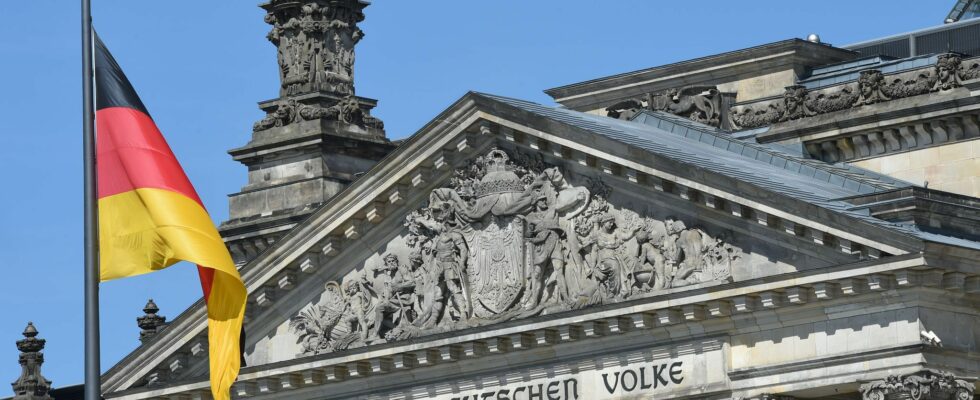For a long time, French political and economic debates took Germany as a point of reference, which was not lacking in justification. Before the 2000s, our neighbor was, economically, the sick man of Europe. The two decades that have just passed had, on the contrary, set up Germany as a model, a consequence of its macroeconomic performance. Thus, between 2000 and 2022, German GDP per capita increased by 24.5%, compared to 15.6% for France. Concretely, the gap in standard of living between the two countries widened significantly during this period, to our detriment. Across the Rhine, the unemployment rate peaked in 2005 at more than 11% of the active population (France was at the same time at 8.9%), before seeing the situation of its labor market improve and fall below 5% from 2013 (it is around 3% today). This growth and “Protestant-style” management of public funds have enabled public debt to come down after peaking at just over 80% of GDP in 2010. It is at 71% of GDP today, 40 points less than ours!
Comparisons between France and Germany were systematically to the advantage of our neighbour, for reasons partly linked to the good supply policy conducted under the mandate of Gerhard Schröder, until his departure in 2005. Schröder had carried out, rather against the unions and part of his social democratic camp, a policy of renovation of the welfare state, a little like that led by Tony Blair in the United Kingdom at the end of the 1990s , based on an idea as simple as it is fair: you have to work, innovate and therefore produce before redistributing.
Today, the German model is challenged for three reasons which do not invalidate the relevance of the previous policy, on the contrary. This supply policy has not been consolidated by a coherent energy policy, Germany is suffering from the shrinking of globalization and the country has not drawn geopolitical lessons from its economic power.
Ecological atavism got the better of Merkel’s rationalism
The first point is widely documented: under the influence of emotion linked to the accident at the Fukushima nuclear power plant in 2011, Chancellor Merkel organized the closure of the German nuclear fleet. The decreasing ecological atavism, very present in Germany since the publication in 1979 of the book by Hans Jonas The Responsibility Principle, got the better of the Chancellor’s rationalism. We know the catastrophic consequences of this decision: coal represents 15% of the country’s energy mix and its production increased in 2022. And just before the war, more than half of the gas used in Germany came from Russia via the Nord Stream gas pipeline. 1 (Nord Stream 2 was ultimately not certified by the Germans). Germany indeed considered Russian gas as the perfect transition energy between nuclear and renewable because it was easily accessible from Russia. The country is now investing in liquid gas infrastructure, but you don’t switch from Russian gas carried by pipeline to American or Qatari gas imported by ship in the blink of an eye.
The second reason that weakens the German economic model is its dependence on the automobile industry. The sector generates more than 10% of GDP. But its exports have been on a downward trend since 2020 while those of China are exploding. The two curves could even intersect in 2023 or 2024. As geopolitical scientist Alice Ekman explains, liberal globalization is changing with geopolitical tensions into “bi-globalization”, or “globalization among friends”. In other words, the future of German industrial exports lies in France, the United Kingdom, the United States (given the rise of protectionism across the Atlantic), countries where most of the big cities have adopted quasi-repressive policies with respect to cars.
The third reason that creates a quasi-identity malaise in Germany is the forced exit from its pacifism. Military expenditure must rise rapidly from 1.5 to more than 2% of GDP, beyond the standard required by NATO. This budget has become higher than that of France. This is a huge novelty that will weigh on public accounts. Horror !
It would be wrong to anticipate that Germany is destined to become a second-tier country in Europe. France is too bogged down in its bureaucratic state to take over, the Polish economy remains too small and the UK has put itself out of business. But clearly, the German model is in forced change, in a country that loves nothing more than stability.
